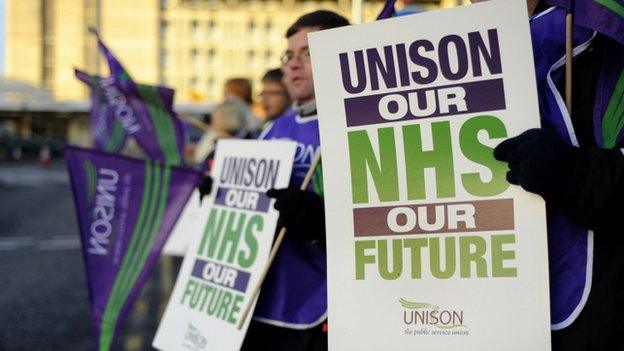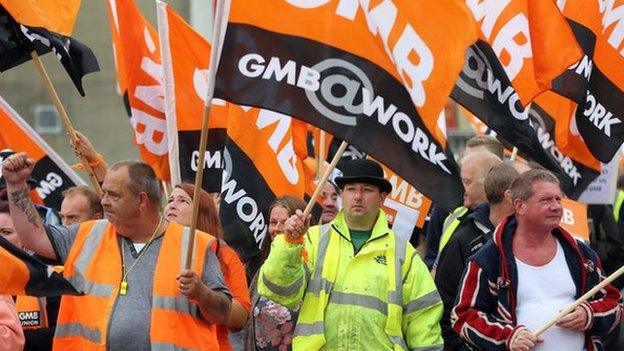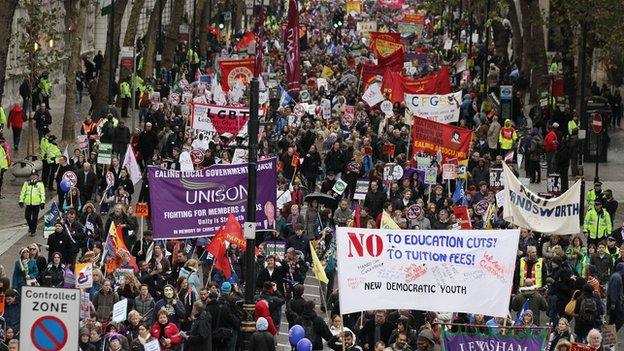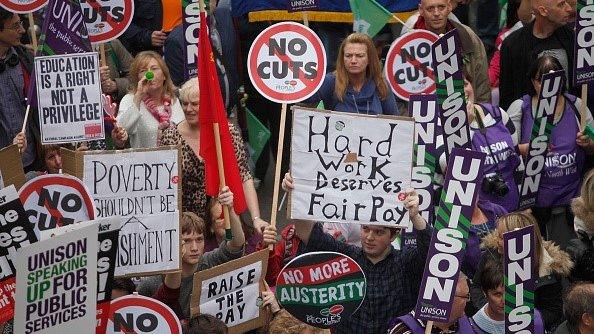Trade Union Bill: How Labour party funding will be affected
- Published
The proposed changes to trade union political funds won't simply have an impact on Labour Party funding.
In fact, some of the 24 unions - such as the civil service union the PCS - which have voted to have such funds aren't connected with Labour in any way.
So while proposals to introduce an "opt in" process for these funds could hurt Labour financially, they would also restrict the ability of union leaders to campaign more widely on political issues.
The legislation on political funds is more than 100 years old but was tightened substantially by the Thatcher government in 1984.
Unions which wanted not simply to contribute to political parties - usually Labour - but to campaign any issue that might be deemed "political" were required to ballot their members every 10 years to establish or keep a separate political fund.
General Strike
Once a decision had been taken to have a political fund, individual members in England, Scotland and Wales then had to take a deliberate decision to "opt out" if they were unhappy with where their money was going.
By turning this round - proposing that trade unionists must now "opt in" - the object is clear.
Fewer members are likely to make a conscious effort to do so, and funds could therefore decrease as a result.
This is precisely what happened between 1927 and 1946 when the "opt in" system was introduced after the General Strike, only to be repealed by the post-war Labour government.
(The then devolved Northern Ireland parliament at Stormont did not follow suit. )
But what effect will this measure have on Labour Party funds today?
Changes introduced under Ed Miliband's leadership mean that those union members who want to be associated with the Labour Party - or, in the jargon, who wish to be "affiliated supporters" - must now consciously opt in.
It's estimated that affiliation fees from big unions, such as Unite and the GMB, will fall substantially as a result - without the need for any legislation from a Conservative government.
So if the government now applies the same principle to political funds as a whole, this would hit Labour less hard than it would have done before the Miliband reforms.
But if the government's plans result - as is likely - in smaller political funds, this would also make less cash available to union leaders to make, at their discretion, the separate party political donations on which Labour increasingly depends.
- Published15 July 2015

- Published12 May 2015

- Published27 May 2015

- Published14 September 2015
